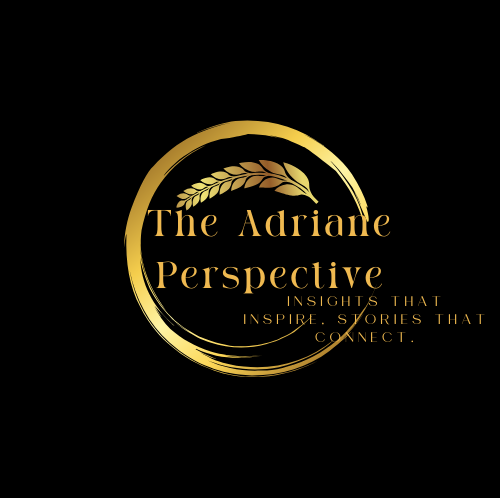In a world where social media shapes narratives, influences elections, and defines cultural moments, Meta’s recent policy changes signal a pivotal shift. With the end of its third-party fact-checking program, the introduction of a community-driven moderation system, and the return of unrestricted political content, these decisions will have profound implications—especially for marginalized communities, including the Black community.
But to truly understand the weight of these changes, we must turn to Derrick Bell’s Interest-Convergence Theory, a framework that helps decode when and why institutions make decisions that seem, on the surface, to address social inequalities.
Meta’s Policy Changes: A Breakdown
Meta’s recent announcements highlight three key changes:
1. The End of Fact-Checking:
Meta will replace third-party fact-checking with a “Community Notes” system, mirroring X’s (formerly Twitter) approach. The argument? Increased transparency and reduced bias. The reality? A crowd-sourced fact-checking system risks becoming a battleground of competing narratives, often leaving misinformation unchecked—especially when it comes to historically marginalized voices.
2. Relaxed Moderation on Sensitive Topics:
Automated systems will focus on severe violations like terrorism and child exploitation, while topics like immigration and gender identity will see fewer proactive restrictions. While “free speech” is the banner, history tells us that under-moderated spaces often become breeding grounds for hate speech, harassment, and misinformation targeting vulnerable groups.
3. Political Content Returns:
Meta is easing restrictions on political content, claiming it reflects user demand. But political content is rarely neutral—it shapes policies, fuels activism, and in some cases, fans the flames of division. For the Black community, political content on Meta’s platforms has historically been a double-edged sword: a tool for mobilization and advocacy, but also a space vulnerable to voter suppression campaigns and disinformation targeting Black voters.
Interest-Convergence Theory: Who Benefits from These Changes?
Derrick Bell’s Interest-Convergence Theory suggests that progress for marginalized communities happens not because of altruism or ethical responsibility, but because it aligns with the interests of those in power.
Meta’s latest policy updates are being framed as a push for “free speech” and “transparency.” But let us ask the critical question: Who benefits the most from these changes?
• Ad Revenue and Engagement: By easing restrictions on political content and moderating less aggressively, Meta stands to gain increased user engagement—a key metric for ad revenue. Content, whether divisive or informative, keeps people scrolling.
• Public Perception: Moving to a “Community Notes” system removes Meta from being the arbiter of truth, insulating them from political backlash and lawsuits tied to content moderation decisions.
• Power Dynamics: In environments with reduced moderation, historically dominant voices tend to overwhelm marginalized perspectives. Hate speech and misinformation disproportionately affect communities with less institutional power—often the Black community.
While Meta’s changes are framed as serving the “community,” the real beneficiaries are Meta itself and groups that thrive in poorly moderated digital spaces.
The Black Community: Risks and Realities
For Black users, these changes carry both opportunities and risks:
1. Weaponized Misinformation: Historically, Black voters have been targeted with disinformation campaigns aimed at suppressing turnout. A weakened moderation system could allow such tactics to flourish again.
2. Hate Speech and Harassment: Less oversight on sensitive topics like immigration and gender creates fertile ground for hate speech, which often targets Black individuals and groups.
3. Amplifying Voices: On the flip side, reduced restrictions on political content could allow grassroots movements like #BlackLivesMatter to thrive without artificial suppression.
But here lies the problem: Community Notes and user-driven moderation are not a safeguard. Platforms like X have shown how such systems can be gamed by organized groups with resources and influence, often drowning out smaller, marginalized voices.
The Rise of Independent Black-Owned Platforms
In response to increasing concerns over bias, moderation, and representation, Black creators and entrepreneurs have been building independent platforms designed to prioritize safety, equity, and cultural representation.
1. Fanbase
• Founder: Isaac Hayes III (son of music legend Isaac Hayes)
• What It Is: Fanbase is a subscription-based social media platform allowing creators to monetize their content directly. Users can post photos, videos, live streams, and audio rooms, with followers subscribing to premium content.
• Why It Matters: Fanbase empowers Black creators to profit from their work without the algorithmic suppression or lack of visibility often seen on larger platforms.
2. Spill
• Founders: Alphonzo “Phonz” Terrell (former Global Head of Social & Editorial at Twitter) and DeVaris Brown (former Product Manager at Twitter)
• What It Is: Spill is a visual conversation platform built for diverse communities, with an emphasis on culture and real-time engagement. It combines meme culture, trending topics, and community-focused conversations.
• Why It Matters: Spill prioritizes moderation, ensuring marginalized voices are not drowned out by harassment or misinformation. It was born from the need to create a safe and thriving space for underrepresented creators.
Both platforms are shaping the future of digital engagement, offering alternatives to mainstream platforms where algorithm bias and corporate interests often overshadow community well-being.
What Can We Do About It?
While the power to change Meta’s policies is out of our hands, there are ways to navigate this new landscape effectively:
1. Digital Literacy is Essential: Know how to spot misinformation and cross-check sources before sharing.
2. Own Our Narratives: Black creators, organizers, and thought leaders must continue to leverage these platforms to tell our stories and amplify our voices.
3. Support Independent Platforms: Platforms like Fanbase and Spill are creating safer spaces for Black voices. Supporting these platforms means investing in digital spaces where equity is prioritized.
4. Advocacy Matters: Pressure on Meta through organized campaigns can push for better safeguards against misinformation and harassment.
The Bigger Picture
Meta’s changes are not just about moderation—they are about control of the digital public square. And in that square, narratives are shaped, elections are influenced, and cultural movements are born. If the playing field is not level, the voices most at risk of being silenced are often those already pushed to the margins.
Interest-Convergence Theory teaches us to question the motivations behind these corporate decisions. Are these changes about free speech, or are they about free profit? Are they about transparency, or are they about removing accountability?
Platforms like Fanbase and Spill remind us that digital spaces can—and should—be built with equity and representation in mind.
In the end, Meta’s policy changes remind us of one critical truth: progress is not given—it must be demanded, protected, and defended.
Let us stay vigilant, stay informed, and above all, stay engaged. Because in this new era of digital discourse, silence is not an option.
– The Adriane Perspective
Where Conversations Meet Clarity.

